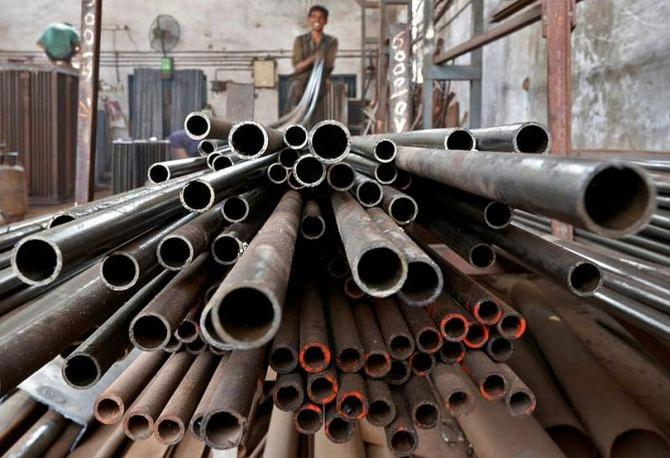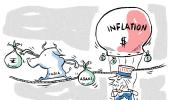Worried by a spike in Chinese imports, the Indian Steel Association (ISA) plans to take up the matter with the government and seek measures to fix "trade distortions".

Alok Sahay, secretary general of the group that represents the country’s steel producers, said systemic changes were needed.
“In order to take any trade measure, it takes a minimum of 15 months’ time, due to prevalence of lesser duty rule in India, making India an easy target.
"We are going to write to the government on this,” he said.
“For a level playing field, trade distortions created by exporting countries have to be countered well in time and effectively.”
The ISA’s data showed that India imported 570,000 tonnes of Chinese steel in April-July of 2023-24 (FY24), an increase of 63 per cent compared to the same period last year.
Imports from Korea were 685,000 tonnes, a 4 per cent dip from last year.
The ISA data is sourced from the Joint Plant Committee (JPC), which is empowered by the government to collect numbers on the Indian iron and steel industry.
Demand for steel in China slumped after the country’s property market ran into trouble, but production increased as India’s economic growth provided an opportunity.
Global steel production moderated, but it went up in China by 2.5 per cent to 627 million tonnes (mt) in January-July 2023, said Jayant Acharya, joint managing director and chief executive officer of JSW Steel.
“The domestic demand in China remains muted, resulting in higher steel exports from China.
"Steel exports from China have risen 28 per cent to 51 mt as a result,” he said.
“India remains one of the few bright spots amid a weak global economic outlook, which makes it vulnerable to increased imports at unfair prices.”
According to Indian companies, Chinese imports were impacting prices.
Data from SteelMint showed that the average monthly price of hot-rolled coil (HRC) ex-Mumbai – a benchmark for flat steel – was at Rs 59,938 per tonne in April. It fell to Rs 55,500 per tonne in July.
Jayanta Roy, senior vice-president at ratings agency ICRA, said Chinese imports had increased on the back of a price difference of 5-8 per cent in the first quarter of FY24 between landed cost of imports and domestic prices.
Ranjan Dhar, chief marketing officer at ArcelorMittal Nippon Steel India (AM/NS India), said that Chinese mills were focused on global markets, leading to a dual impact on the Indian steel industry.
“First, the Chinese mills are gaining a foothold in our traditional export markets, and second, they are pushing products into the Indian market at lower prices.
"In response to this situation, the government should promptly consider implementing quotas for countries with free-trade agreements (FTAs) and imposing anti-dumping duties on imports from countries without FTAs,” said Dhar.
Global demand for steel has been muted, adding to the worry of Indian steelmakers. India’s finished steel exports in April-June were down 6.4 per cent compared to the same period last year; flat products were down 0.3 per cent.
Sahay said that without a stable trade environment, investment in the sector would suffer.
Indian steel companies would add about 30 mt in capacity between FY24 and FY26.
Acharya said the European Union and the US had put in safeguards, but India had no effective trade measures and stood exposed.
“It is time for the government to put in place safeguard mechanisms to ensure that Indian steel investments are not put to risk.”
ICRA’s Roy said that when India imposed anti-dumping duty measures in 2016, steel imports from China came down and the share of FTA countries (Korea and Japan) increased.
“But the anti-dumping duty was withdrawn in 2021 when the property market also tanked in China, which may have led to an increase in imports from China,” he said.











